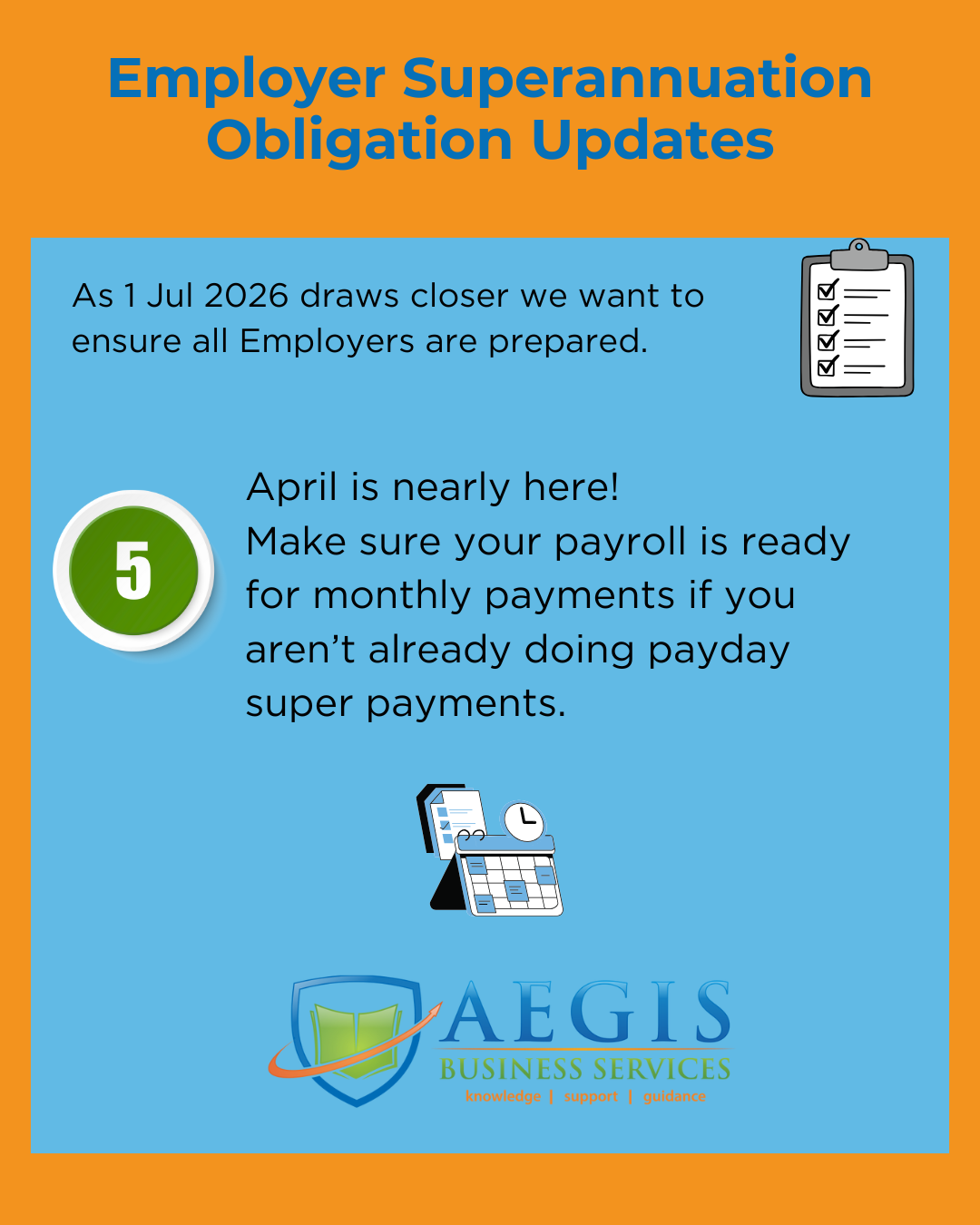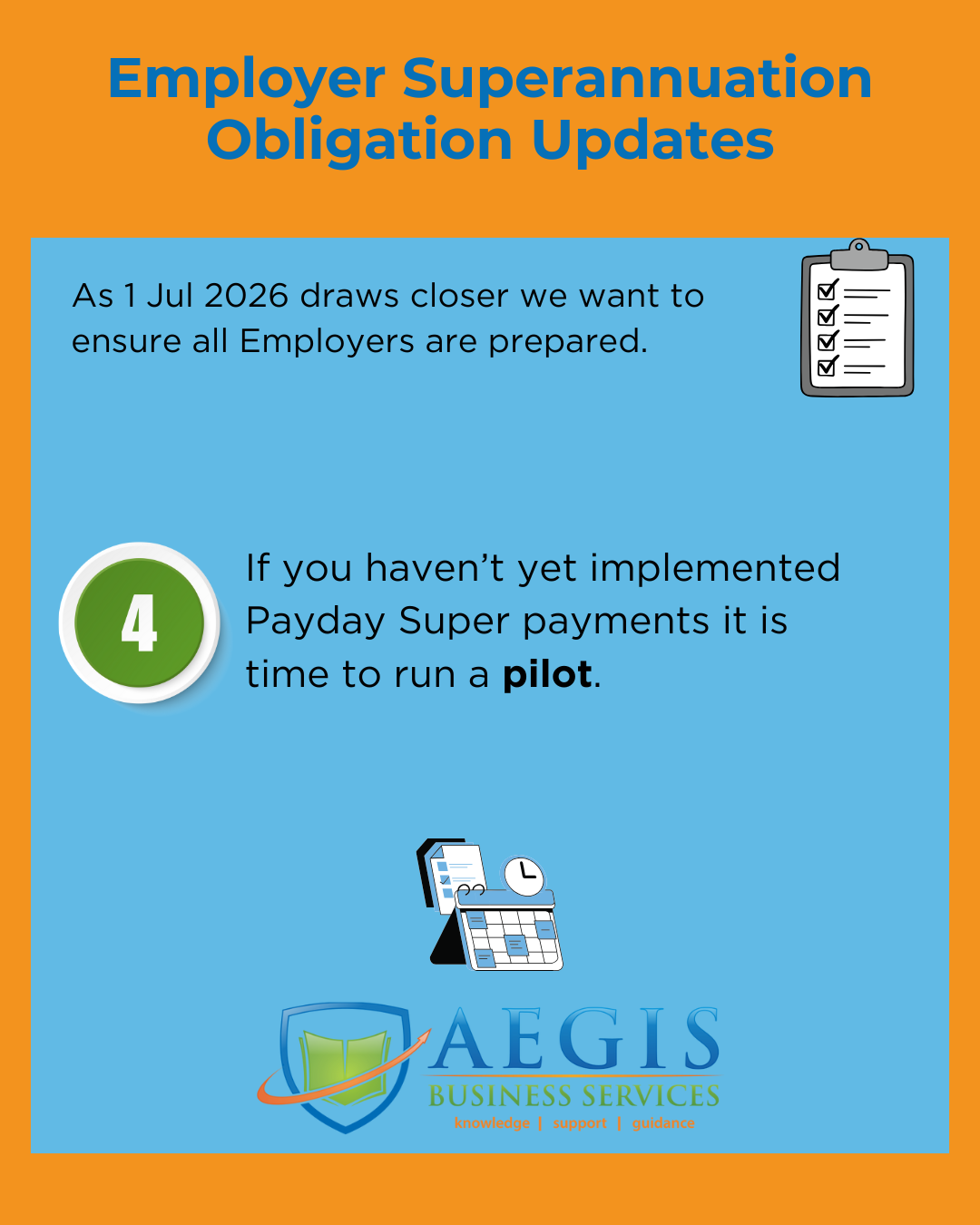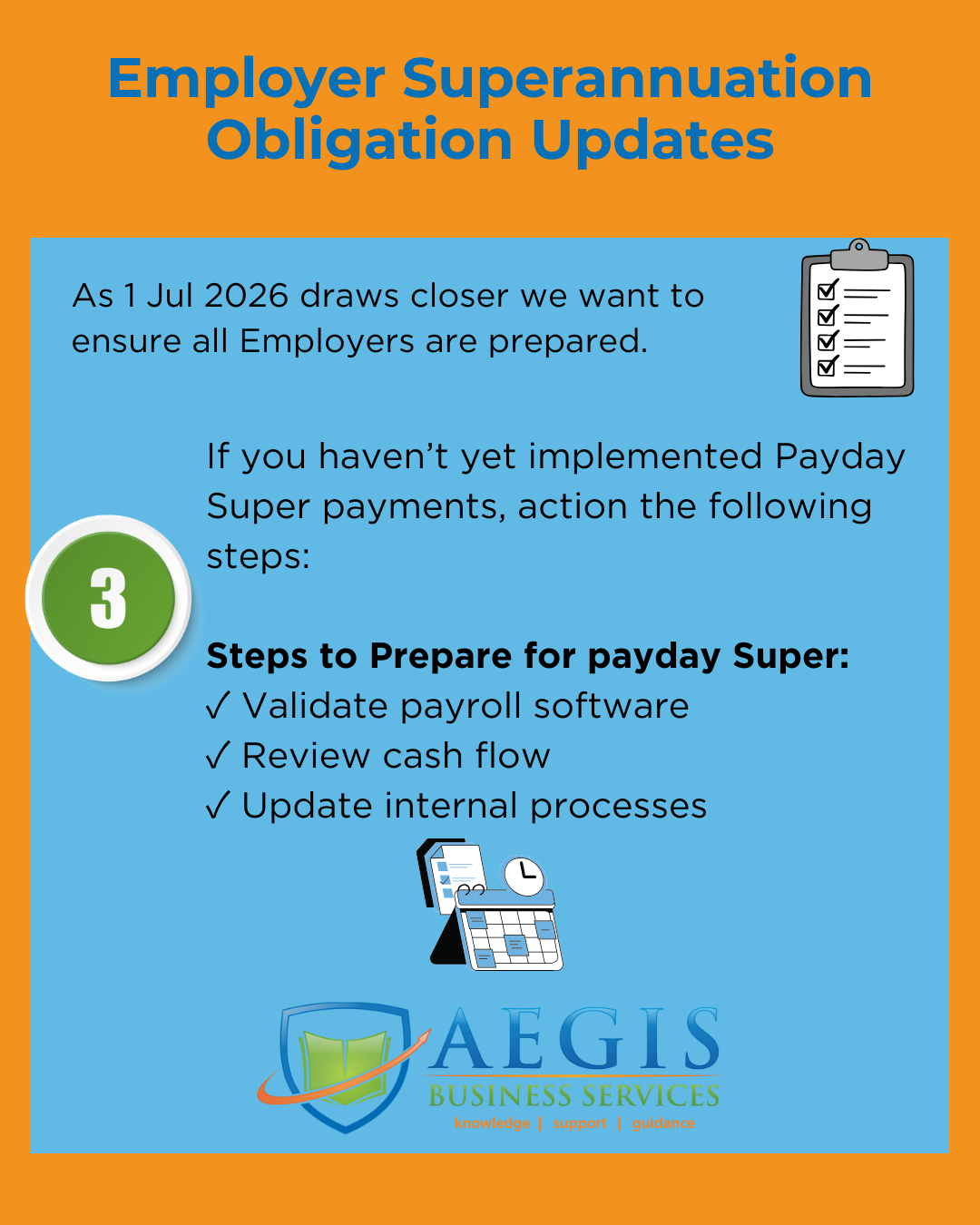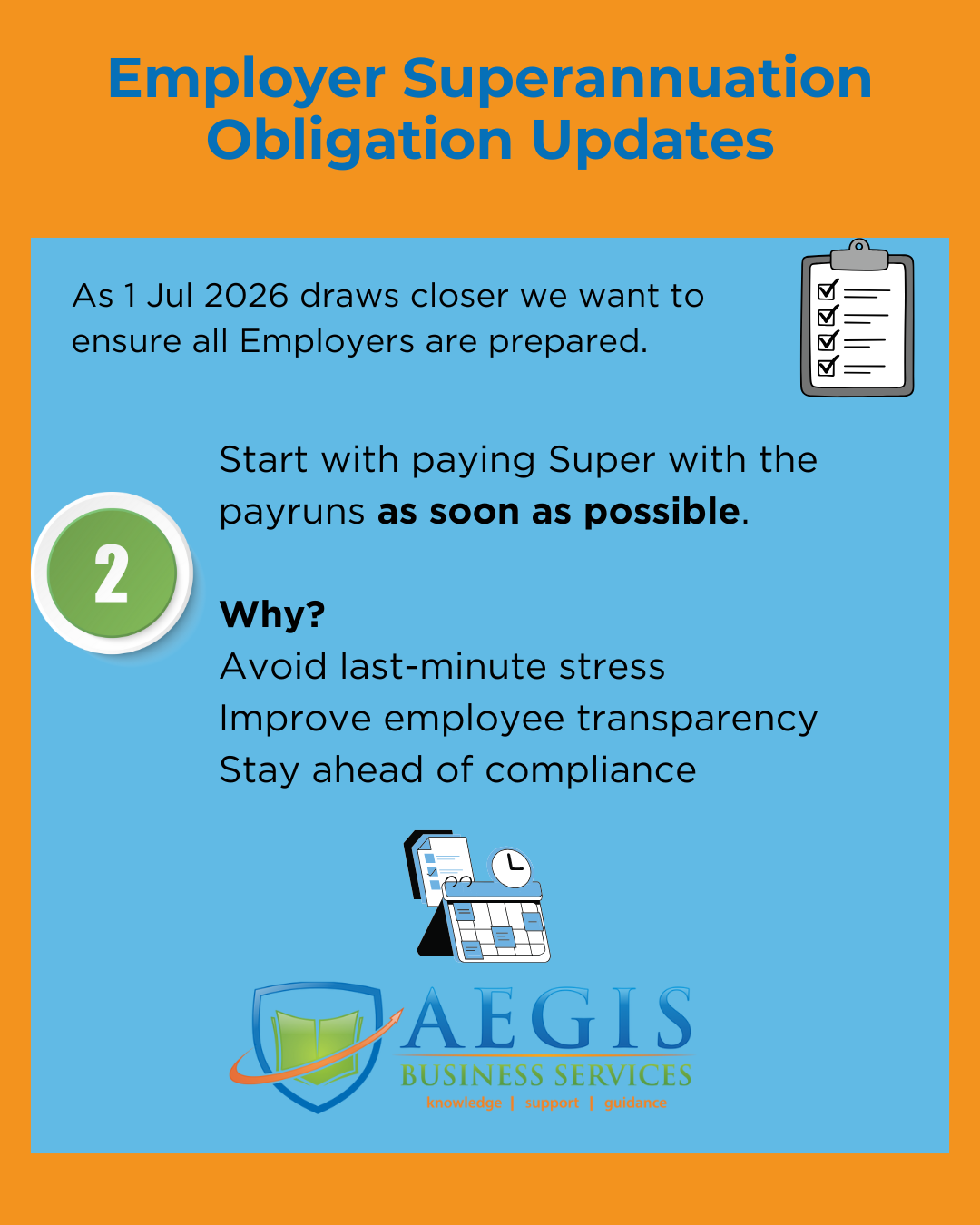💸 How to Minimise Your Personal Tax in 2025: A Friendly Guide for Employees
Employees
As we approach the end of the financial year, now’s the perfect time to think about how you can legally reduce your tax bill and make the most of your hard-earned money. Whether you're dreaming of a holiday, saving for a home, or just want to boost your super, a little planning can go a long way. Here’s an easy to follow guide to help you get started.
🏠Working from Home? Claim Those Expenses!
If you’ve been clocking in from your home office, you might be eligible to claim some of those costs. The ATO’s Revised Fixed Rate Method
lets you claim 70 cents per hour worked from home (from FY2025). This covers things like electricity, internet, and phone usage.
To use this method, you must keep a record of your hours worked from home—either a diary, timesheet, or roster. The ATO won’t accept
estimates, so make sure your records are accurate and up to date.
Prefer to claim actual costs? You can do that too—just make sure you keep all your receipts and invoices.
💰 Super Contributions: A Smart Way to Save Tax
1. Max Out Your Super Contributions
You can contribute up to $30,000 to your super and claim it as a tax deduction (if you're under 75 and meet the work test if over 67). But
here’s the catch: this $30,000 cap includes the Superannuation Guarantee (SG) contributions your employer makes on your behalf. So before
you top up your super, check how much your employer has already contributed this financial year to avoid going over the limit.
Super is taxed at just 15% (in most circumstances), compared to personal tax rates of up to 47%—so it’s a smart way to grow your retirement
savings while reducing your tax bill.
2. Use Your Unused Caps
If you haven’t maxed out your concessional super contributions in previous years, you might be able to carry forward the unused amounts
from the past five years and make a larger contribution this year.
But there’s an important condition: this only applies if your total super balance is under $500,000 as at 30 June of the previous financial
year. So, if your balance is above that threshold, unfortunately, you won’t be eligible to use the carry-forward rule.
Also, keep in mind that unused cap amounts from the 2020 financial year will expire on 30 June 2025, so this is your last chance to use
them!
3. Boost Your Spouse’s Super (and Get a Tax Offset)
If your spouse earns under $37,000, you could get a tax offset of up to $540 by contributing to their super. It’s a great way to grow both
your nest eggs.
4. Government Co-Contribution
Earn less than $45,400? If you make a non-concessional contribution of $1,000, the government might chip in up to $500. That’s free money!
🚗 Car Expenses? Keep a Logbook (and Some Proof)!
If you use your car for work, you may be able to claim a deduction—but there are a couple of things to keep in mind.
You’ve got two main options:
- Logbook Method: Keep a 12-week logbook that records all your work-related travel. This period must be representative of your usual car
use over the whole year. So, if you’re planning a long road trip or love taking the 4WD off-road, it might be better to keep the logbook
for the full year to ensure accuracy.
- Cents-per-Kilometre Method: You can claim up to 5,000 km at a set rate per kilometre—no logbook required, but you’ll still need to show
how you calculated the distance.
💡 Pro tip: It’s a good idea to get a letter from your employer confirming that you’re required to use your car for work purposes. This can
help support your claim if the ATO ever asks questions.
🏡 Got an Investment Property?
A Property Depreciation Report can help you claim deductions on wear and tear. It’s usually worth the cost in tax savings, especially in
the first year.
📈 Investment Tips
- Prepay expenses like interest on investment loans or subscriptions before 30 June to claim them this year.
- Review ownership of your investments—family trusts can offer flexibility and tax benefits.
- Sell underperforming assets to realise capital losses and offset gains.
- Defer income or capital gains until after 30 June if possible.
🧾 Other Deductions to Remember
- Income Protection Insurance: Premiums are usually tax-deductible.
- Work-related expenses: Uniforms, training, tools—keep those receipts!
- Salary Sacrifice: If you earn over $45,000, consider sacrificing some salary into super to reduce your taxable income.
🗳️ Possible Tax Changes After the Election: What to Watch Before 30 June
With the recent federal election wrapped up, there are a few proposed tax changes that could still come into play before the end of this
financial year—or at least shape how you plan ahead. One of the key proposals from the Labor government is a standard $1,000 tax deduction
for work-related expenses. This would allow eligible taxpayers to claim a flat $1,000 deduction without needing to keep receipts or
detailed records—a big time-saver for many.
Here’s what we know so far:
- It’s designed to benefit around six million workers, especially those who currently claim less than $1,000 in work-related deductions.
- If your actual expenses are more than $1,000, you can still choose to claim the higher amount—
but you’ll need to fully substantiate those claims with receipts and records.
- This change is proposed to start from 1 July 2026, but it’s worth keeping an eye on the budget announcements and ATO updates in case
anything is brought forward. So while this won’t affect your 2025 tax return just yet, it’s a good reminder to stay informed and flexible
with your tax planning.
The 30 June deadline is fast approaching. A little planning now could mean big savings later. And remember—don’t spend money just to get a deduction unless it’s something that genuinely benefits you.
This guide is general in nature and doesn’t consider your personal situation. For tailored advice, request a tax planning proposal from your Aegis Business Services contact person.




